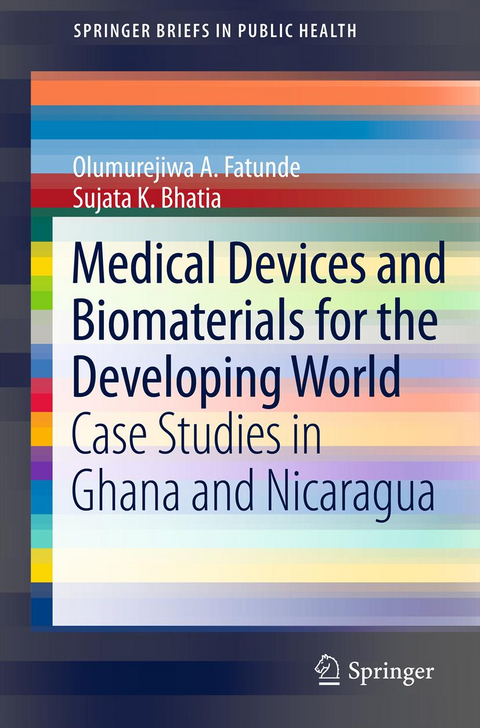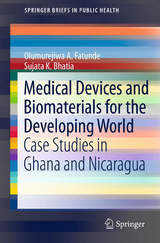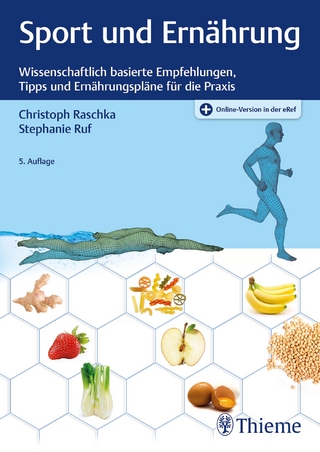Medical Devices and Biomaterials for the Developing World
Case Studies in Ghana and Nicaragua
Seiten
2012
Springer-Verlag New York Inc.
978-1-4614-4758-0 (ISBN)
Springer-Verlag New York Inc.
978-1-4614-4758-0 (ISBN)
This book focuses on the adoption of medical technology in the developing world, and the role that can be played by new biomaterials. These authors urge that advanced technology be aligned with the needs of developing and emerging markets, and an alternative definition of technology be embraced. This “new technology” considers natural sources of materials and tools for treatment and is not restricted to the usual traditional computerized or electronic technology.
This book explores the difficulties that accompany successful transfer of technologies between disparate settings. The book then leaves the world of traditional technology and focuses on biomaterials, which represent an enormous opportunity for developing societies to become active participants in the development of new technologies. Biomaterials can be used in the treatment of disease throughout the developing world and beyond. Biomaterials encompass a range of naturally derived substances; of particular interest here are naturally derived and synthetically manufactured materials with potential applications in different body systems. Because many of these materials can be grown, the agricultural output of developing nations is an obvious potential source of these biomaterials. The book considers the cases of Ghana and Nicaragua as examples of the broader situation in West Africa and Central/South America. These two regions are uniquely positioned with regard to both health care and technological capabilities, and both stand to grow significantly in the coming years. While the agricultural sectors of the two nations are quite different, both are major producers of corn and other materials that should be investigated further. Of course, the difficulty in using a foodstuff for medical purposes is fully explored.
This book explores the difficulties that accompany successful transfer of technologies between disparate settings. The book then leaves the world of traditional technology and focuses on biomaterials, which represent an enormous opportunity for developing societies to become active participants in the development of new technologies. Biomaterials can be used in the treatment of disease throughout the developing world and beyond. Biomaterials encompass a range of naturally derived substances; of particular interest here are naturally derived and synthetically manufactured materials with potential applications in different body systems. Because many of these materials can be grown, the agricultural output of developing nations is an obvious potential source of these biomaterials. The book considers the cases of Ghana and Nicaragua as examples of the broader situation in West Africa and Central/South America. These two regions are uniquely positioned with regard to both health care and technological capabilities, and both stand to grow significantly in the coming years. While the agricultural sectors of the two nations are quite different, both are major producers of corn and other materials that should be investigated further. Of course, the difficulty in using a foodstuff for medical purposes is fully explored.
Prof. Sujata Bhatia is Assistant Director for Undergraduate Studies in Biomedical Engineering at Harvard University. Olumurejiwa Fatunde is a graduate student in International Health Policy at the London School of Economics. She graduated from Harvard University with an AB in biomedical engineering.
Introduction.- Case study of Ghana.- Case study of Nicaragua.- Corn and soy-derived materials: Properties and potential clinical applications.- Feasibility study of corn- and soy-derived materials.- Discussion, recommendations, and conclusion.
| Reihe/Serie | SpringerBriefs in Public Health |
|---|---|
| Zusatzinfo | 11 Illustrations, color; 30 Illustrations, black and white; XVIII, 112 p. 41 illus., 11 illus. in color. |
| Verlagsort | New York, NY |
| Sprache | englisch |
| Maße | 155 x 235 mm |
| Themenwelt | Studium ► Querschnittsbereiche ► Prävention / Gesundheitsförderung |
| Naturwissenschaften ► Biologie ► Biochemie | |
| Naturwissenschaften ► Biologie ► Mikrobiologie / Immunologie | |
| Naturwissenschaften ► Chemie ► Organische Chemie | |
| Naturwissenschaften ► Chemie ► Technische Chemie | |
| Technik | |
| Schlagworte | biomaterials • Biomaterials in Ghana • Biomaterials in Nicaragua • developing world • medical biochemistry • Naturally-Derived Materials • Natural Products • Polymer • Public Health • SpringerBriefs |
| ISBN-10 | 1-4614-4758-5 / 1461447585 |
| ISBN-13 | 978-1-4614-4758-0 / 9781461447580 |
| Zustand | Neuware |
| Haben Sie eine Frage zum Produkt? |
Mehr entdecken
aus dem Bereich
aus dem Bereich
Lehrbuch zur berufsspezifischen Ausbildung
Buch | Softcover (2021)
Kohlhammer (Verlag)
46,00 €
das Manual zur psychologischen Gesundheitsförderung
Buch | Hardcover (2023)
Springer Berlin (Verlag)
39,99 €
Wissenschaftlich basierte Empfehlungen, Tipps und Ernährungspläne für …
Buch (2022)
Thieme (Verlag)
39,99 €




